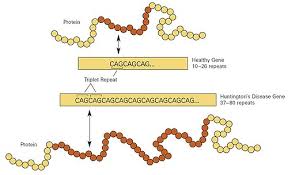Understanding Huntington Disease: Symptoms and Research

Introduction
Huntington disease (HD) is a hereditary neurodegenerative disorder that impacts motor control, cognition, and emotional wellbeing. Affecting approximately 5-10 individuals per 100,000, HD is particularly relevant in discussions surrounding genetic disorders, as it embodies the complexities of hereditary diseases and their societal implications. The disorder results from an abnormal expansion of the CAG gene repeat within the HTT gene, leading to progressive brain cell degeneration.
Symptoms and Progression
Symptoms of Huntington disease typically manifest between the ages of 30 and 50, though juvenile forms do exist. Common initial signs include subtle changes in mood and cognition, such as irritability, depression, and memory issues. As the disease progresses, more pronounced motor symptoms appear, including chorea (involuntary movements), difficulty with coordination, and problems with speech. Over time, individuals may also develop cognitive decline and psychiatric disorders, severely impacting their quality of life.
Current Research and Treatment
Despite the absence of a cure for Huntington disease, significant advancements have been made in research and management. Ongoing studies are focused on understanding the mechanisms of the disease, with an emphasis on gene therapy, which aims to directly target the mutant HTT gene. Additionally, supportive therapies such as physical, occupational, and speech therapy play crucial roles in managing symptoms and maintaining functionality. Clinical trials are actively investigating the efficacy of drugs designed to slow disease progression and improve symptom management.
Implications for Families and Society
The genetic basis of Huntington disease raises important considerations for families, particularly concerning genetic testing and counseling. Individuals at risk for HD often face difficult decisions regarding testing, as the knowledge of one’s genetic status can have profound psychological and social consequences. Furthermore, understanding HD can foster community awareness and support for affected families, emphasizing the need for resources and advocacy for those living with the disease.
Conclusion
As research continues to evolve, there is hope for more effective treatments for Huntington disease. Increased awareness and education about HD can lead to better support systems for patients and families. For individuals diagnosed with Huntington disease, advancements in medical research, therapeutic options, and community support play pivotal roles in navigating the challenges of this complex genetic disorder. As our understanding of HD expands, so too does the potential for enhanced quality of life for those affected.









